RT Interview
-
Conquer Mars with Genetic Engineering. Anthropologist Stanislav Drobyshevsky on evolution, IQ and race
-
Julian was “the most surveyed person on the planet,” - John Shipton, Assange’s father EXCLUSIVE interview
-
First US Covid-19 Patient in Russia . John Mark Dougan, talks about getting the coronavirus
-
How I Quit Drinking in Russia - Steve's Story
-
Migrants' Libyan nightmare. Michelangelo Severgnini from the Exodus – Escape from Libya project explains how migrants are extorted
-
French actor David Proux on how he got over Covid-19 without medicine
-
Ron Hubbard Interview. How Bunkers Could Save Americans?
-
Dr John Keet Interview . How long will Britain’s lockdown last?
-
How the US overlooked the COVID outbreak
-
Earthship homes: future of the post-coronavirus world?
-
‘People want security’ - media analyst Lionel on how protests can affect elections
-
Mikhail Mishustin’s first interview since becoming Russia's Prime Minister. He talks about the pandemic, and the country's plans for life after COVID
-
Vladimir Spivakov interview: "Music is love"
-
Mihail Chemiakin: ’The FBI and CIA have been promoting American artists'
Conquer Mars with Genetic Engineering. Anthropologist Stanislav Drobyshevsky on evolution, IQ and race
Is evolution just a theory? Will human beings adapt to life on Mars? Does science prove some races are smarter than others? Stanislav Drobyshevsky, science communicator and associate professor of anthropology at Moscow State University’s Biology Department, explains the latest advances in paleoanthropology, and how science sheds light on today’s burning issues as well as on humanity’s next transformation.
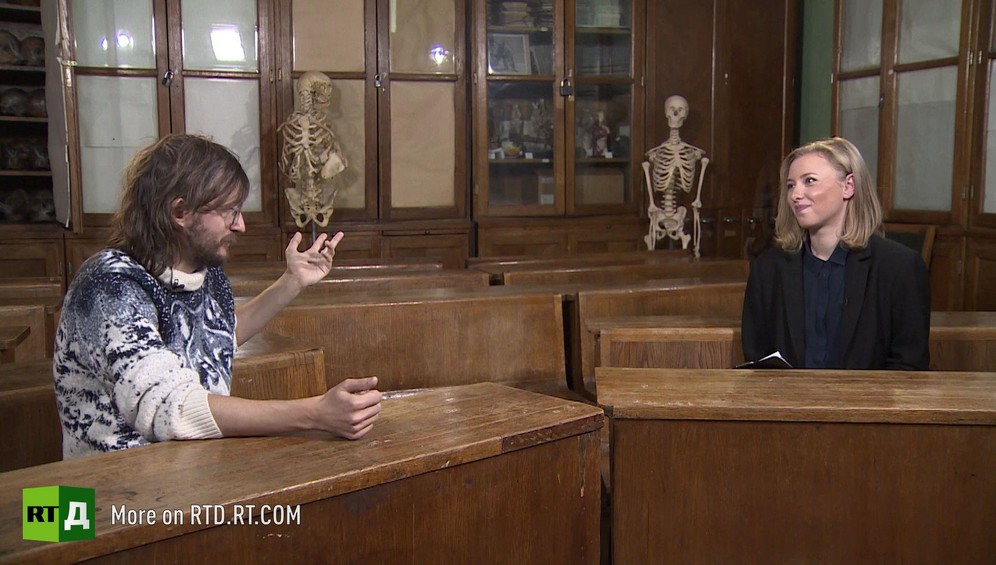
Let's begin with current issues. Tell us about recent discoveries in the field of anthropology. What are the hottest topics preoccupying science today?
Well, actually, anthropology has been developing at a great pace. Over the past 150 years, lots of discoveries have been made, and each year is bringing us more and more of them. In 2019 we’ll be celebrating the centenary of the department of anthropology and each one of these hundred years was marked by amazing events. Over the past couple of years, we have discovered several new species of humans, the latest one being Homo Naledi. These ancient people lived some 300,000 years ago but were similar in appearance to those who lived 2 million years ago. This unusual species with a very particular build was discovered in South Africa.
This is more along the lines of paleo-anthropology, while anthropology in fact does not deal exclusively with fossil human remains, fossil sculls, but mostly with modern-day people. Most anthropologists study contemporary school kids, the elderly, athletes – you name it. Athletic anthropology, for example, is on the rise these days, it’s coming up with something new every single day. They do studies on mountain climbers, on runners etc., producing lots new findings. In the past 10 years we have witnessed amazing developments in paleo-genetics. It’s booming. They found a way of recovering DNA from the fossils of Homo Heidelbergensis that lived over 400,000 years ago and up to the present day, including modern-day humans.
Genetic scientists sincerely believe that they’ll solve all mysteries with their tools of the trade, but anthropologists have so far seen that most of their discoveries are simply proving something that was known without the genetics’ help. But sometimes very interesting facts come to light. Like, recently, just a few years ago, a new species of Denisovans, Homo Denisova, was found, and each year brings us something new, like, in 2018 two marvellous academic works on Denisovans were published. First, it turned out that they interbred with modern humans at least twice, and second, they discovered a tiny little shard of a bone that could apparently tell us nothing, but with the help of genetics it was possible to determine that it belonged to the first-generation hybrid of a Neanderthal and a Denisovan. Meaning, his mother was a Neanderthal and his father was a Denisovan. So he was a mix of two species of archaic humans. At the same time, we’re getting more and more information about relations between various groups of modern-day humans.
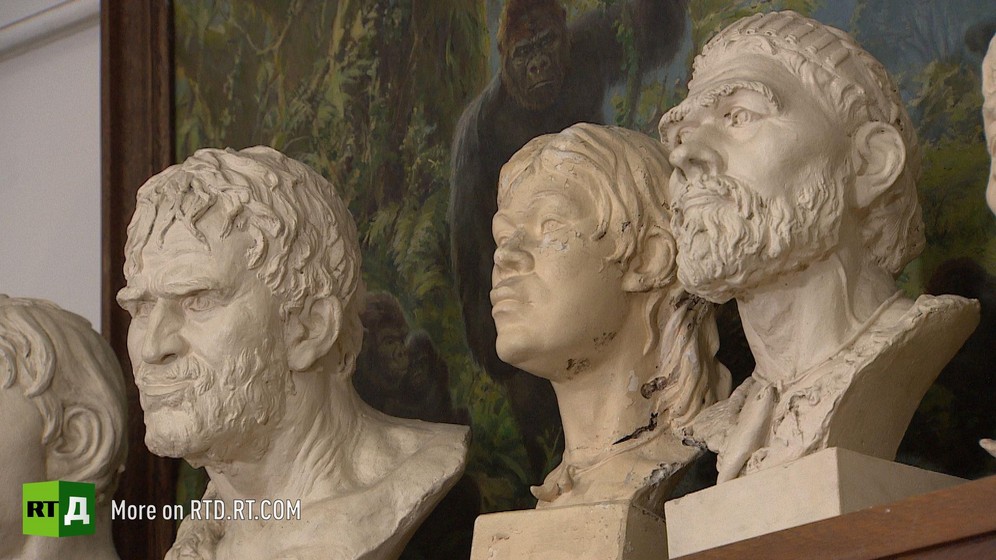
You’re saying that it became possible to recover the DNA of ancient humans. Does it mean that modern technologies could help us reproduce them and create something like a Jurassic park?
Yeah, like an amusement park at a shopping mall. In theory – yes. But in practice, we don’t have the technologies that would allow us to reproduce a true Neanderthal. However, based on how fast they are developing, I have no doubt that 10-20 years from now, it will be a real possibility. The only obstacle on that path is the ethical aspect, because there is always a moralist crowd shaking their finger and saying “no, no, no, it’s human beings you’re dealing with, you can’t use them as guinea pigs”.
Well, of course such technologies aren’t being developed for the sake of breeding Neanderthals, no matter how much fun it would be and how much any anthropologist would love to see a living Neanderthal. These technologies are being developed for medical use, to help us treat diseases. Let’s say I’ve already lost half my teeth, I wouldn’t mind if the doctors could tamper with my genes so that I’d grow them back. The country that is the first to launch such genetic engineering projects with regard to humans will enjoy great economic benefits, because it won’t have to spend so many resources treating, for example, AIDS or a great deal of different genetic and non-genetic diseases. We could make humans resistant to viral and bacterial diseases, such as flu. It’s still a theory, but the Chinese are making pretty quick progress.
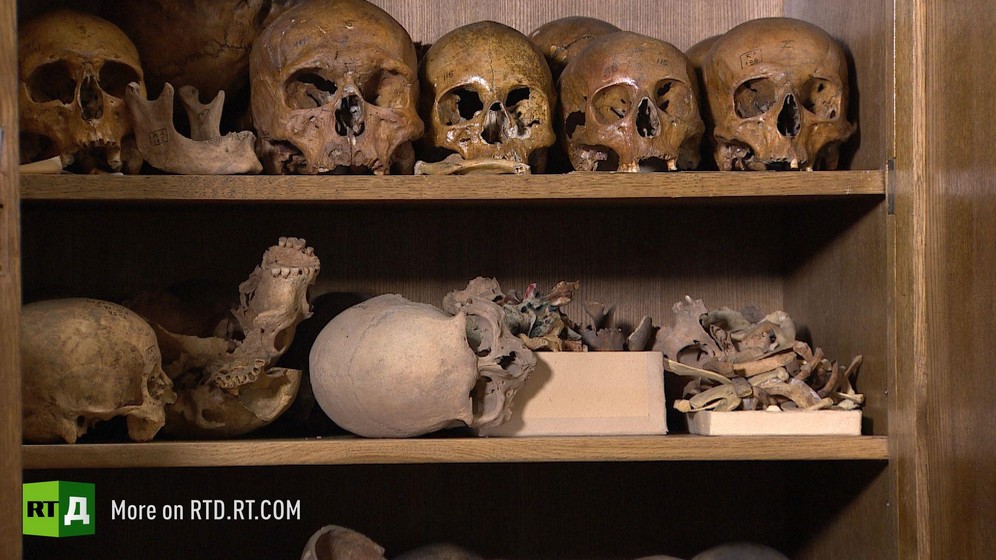
You mean the CRISPR Cas-9 gene editing technology, if I understand you correctly? It’s been discussed for years that this technology could help us breed a mammoth?
Well, yes, but the problem with breeding a mammoth is that apart from having its genome, we must have an egg that we could put this genome into. And sadly, we don’t have any mammoth eggs.
How about elephants?
Well, an elephant isn’t quite a mammoth. It’s a different species and even a different genus, so theoretically it could work but it could equally well fail. There have been similar experiments with frogs – mind you, breeding frogs is much cheaper than breeding mammoths – but all of them failed. Scientists have tried to restore an extinct species of Australian frog that vanished in the 80’s, having planted its DNA into (an egg of) a closely-related existing frog species, but it didn’t work. Having said that, breeding elephants is quite a bit more costly than breeding frogs. It takes time to grow one. When scientists worked on breeding Dolly the sheep, they failed several dozen times before they succeeded. Several dozen messed up elephants doesn’t sound like a good idea. We don’t have them in such numbers. So working with elephants might be a problem.
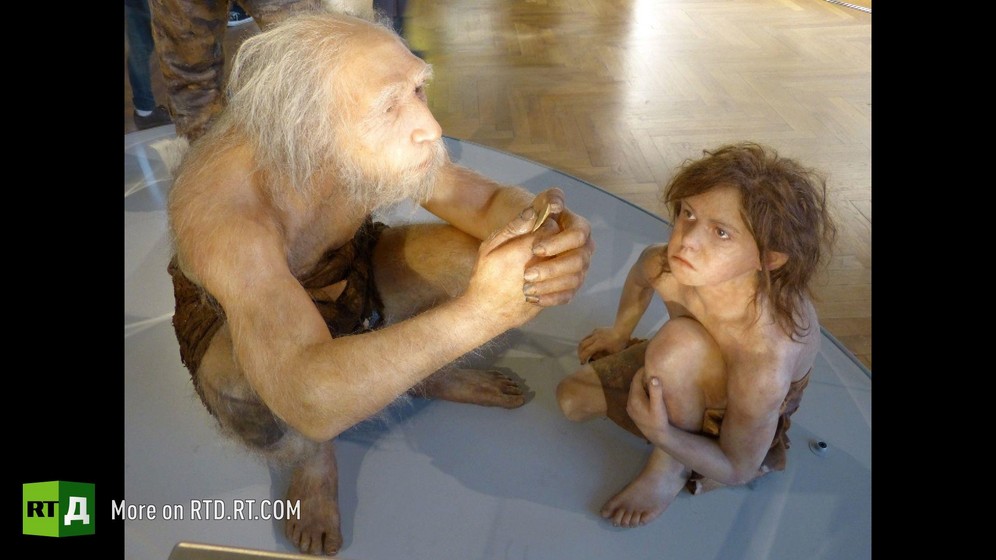
As far as I understand, there isn’t much practical purpose in breeding mammoths and Neanderthals, it’s just scientific interest.
No, there is a practical purpose. First of all, mammoths aren’t only known for their precious fur, but each animal can produce up to 5 tons of meat. I’m not sure it’s economically sound, as breeding cows might be more profitable, but I believe if someone started selling Mammoth meat, he’d raise enough money to fund his research for 100 years to come. Plus, there’s a simple thing like tourism. If you could give people a chance to look at a living mammoth – I’m sure it would stir quite some interest. That’s would definitely be profitable. Plus, you could use a mammoth population to change the eco-system. Say, if we populated a part of Yakutia with mammoths, the eco-system would change and we could set up some kind of natural reserve. The idea of such a park has been around for quite a while, but these days this reserve features only present-day animals that, sometime in the past, were sharing the land with mammoths, but, unfortunately, there are no mammoths to be seen yet. However, it’s a theoretical possibility and it could make a profit. As I said, a mammoth produces so much wool you could knit sweaters with it for the rest of your life.
Let’s talk about Neanderthals in more detail. Many people think that Neanderthals are extinct, however, it isn’t quite the case. Could you tell us about that?
Well, Neanderthals did die out after all, but they were still around in the Middle East some 50-60 thousand years ago when Homo Sapiens ventured out of Africa for the last time, and all over Eurasia, for that matter, but most importantly in the Middle East. So the migrating Homo Sapiens individuals interbred with these Neanderthals – not many of them, but enough to ensure 2-2,5 percent Neanderthal DNA in modern-day African populations, but this interbreeding most likely happened on three separate occasions. The first time it happened, it involved all non-African populations. The second time, only the ancestors of Caucasians and Mongoloids interbred with Neanderthals, while the third episode involved only Asian ancestors of Mongoloids –that being said, modern populations carry different amounts of Neanderthal DNA.
Like, in Africa, for example, it’s hardly present, except for the instances of reverse migration of Arabs, in Australia they’ve got very little of it, somewhat more in Europe and even more in Asia. Being Caucasians you and I possess some Neanderthal DNA, but maybe to a varying extent. Should we analyse the DNA of all modern humans, we’d be able to account for 35 to 75 percent of Neanderthal DNA, according to various estimates. It could allow us to put together a puzzle using pieces from different people ,thus reconstructing up to 75 percent (this number is maybe too optimistic) of the Neanderthal gene pool. But considering that Neanderthals didn’t differ from modern humans too much, we’d be able to see a pretty complete picture.
We do know that Neanderthals had a pretty advanced culture, that they used some sort of speech, so what happened? Why did they go extinct and vanish from the face of the earth?
Neanderthals weren’t that bad. Their brain weighed in at 1.5 kilos – that’s bigger than our brain, to be honest. They had pretty sizeable heads and a very particular culture. It is known that Neanderthals were the first ones to come up with individual adornments that were discovered in the Krapina cave. Archaeologists found pendants made from white-tailed eagle claws, really beautiful ones, dating from 130,000 years ago. Our ancestors fashioned something similar out of shells about 100 000 years ago, so Neanderthals outdid them. They were also capable of building a fire using a mineral called pyrite, which is unconventional, and so on. They were the first ones to prepare birch coal pitch, meaning they were pioneers of the chemical industry some 45,000 years ago. It was the first ever material to be artificially produced by humans, however, in certain areas they were quite backwards, so to say.
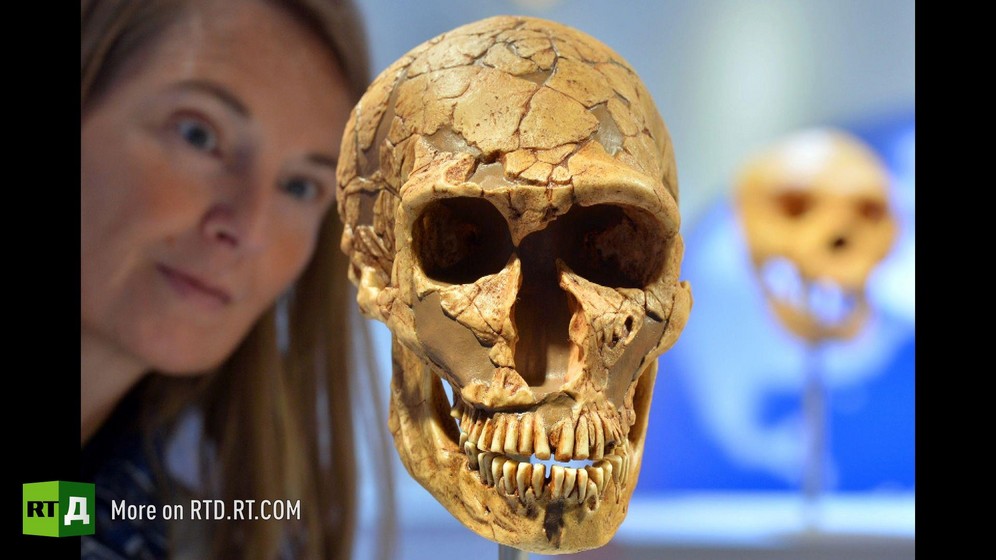
For instance, they kept making the same instruments for the next 100,000 years and nothing really changed. They weren’t too keen on digging pits, they were unable to build a dwelling, although they did make burial sites, so they had their own rituals. Some claim that Homo Sapiens committed a genocide against them by simply butchering the entire population and stabbing them with spears, but it is likely false, because Neanderthals were pretty ripped guys – and girls – themselves. They could knock the living daylights out of anymore since they were well-armed, they were hunters and expert killers. So outdoing them in warfare… Well, hunters and gatherers weren’t big on genocide, they weren’t like that. And what for? They had tundra stretching for miles around them.
As for the demographics, Cro-Magnons could easily win in that respect, because based on what we can tell from their bones, Neanderthals – both men and women – had elevated male sex hormone levels. It was fine for men, but it didn’t do much good for women’s fertility. If a woman has too many male hormones, she has broad shoulders, she can even sprout a beard and talk in a very low voice, and it looks like Neanderthal women were all pretty much like that. They had a square build, very pronounced brow ridge, a square jaw and the like. But, at the same time, it meant they were less fertile, so they had fewer offspring. They may have had problems with giving birth and breast-feeding their babies, so it resulted in fewer children overall statistically. While Neanderthals were the only people in Europe, it was fine, because there were superb predators, there were at the top of the food chain, like, maybe next to lions who they slaughtered left, right and centre.
Too many predators like that weren’t needed, so it was fine. The fact that they didn’t breed like crazy was good, because otherwise they could run out of food, given their extensive hunting. But then Homo Sapiens arrived. They were much more resourceful, they could use plants, caught fish, gathered mushrooms and so on, plus they bred like rabbits, because they had no hormonal challenges. Having ended up in the same territory, they quickly outnumbered Neanderthals. Simply speaking, in an area of 20 sq.m. there would be a X number of Neanderthals and 3 times as many Cro-Magnons. So, 5,000 years later, inevitably there were only Cro-Magnons left – that’s pure maths.
During Q&A’s after your popular science lectures you probably get tons of naïve and silly questions. We’ve prepared some, too. To begin with, I’d wonder, what are the main differences between skulls of modern people and Neanderthals?
Neanderthals were bigger than modern people, that’s obvious. They had a pronounced brow ridge, huge prominent faces. Modern people have dimples, but they had huge very-highly positioned eye sockets instead. They had a chinless lower jaw, the back of their heads protruded very much backwards, large teeth. They were heavily-built and sturdy people. Modern people have modern features – a vertical brow, small brow ridge, petite jaws, a thin nose and small eye sockets.
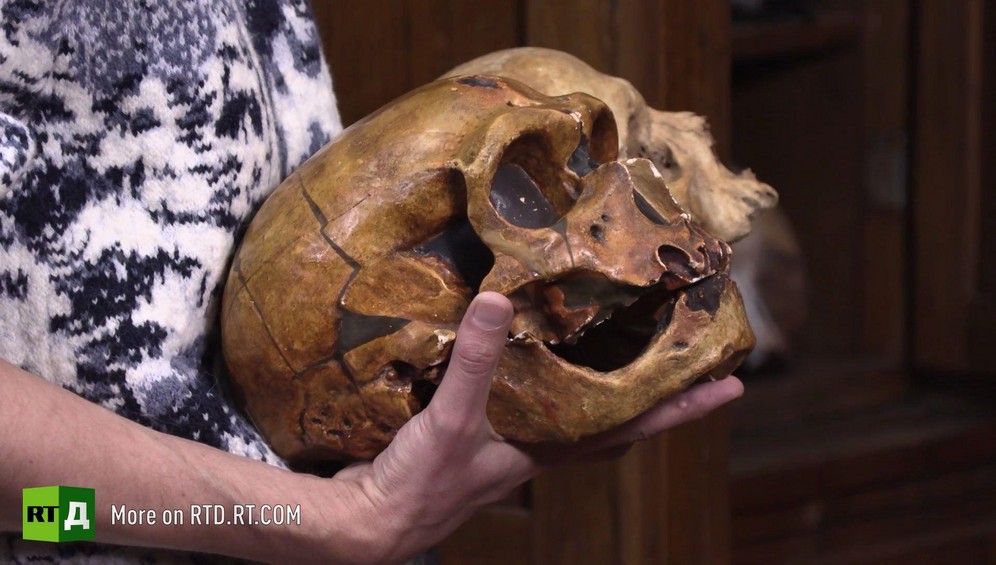
Is it true that the bigger the brain the smarter the person?
No. I mean, from the evolutionary standpoint, that’s the case: if we compared an Australopithecus to a human, we’d clearly see that the brain grew three times bigger, hence, we became smarter. But speaking of modern people, there’s practically no correlation between brain size and intelligence.
If humans descend from monkeys, why aren’t monkeys turning into humans as we speak?
Because monkeys are turning into monkeys. Because we are the descendants of the monkeys who evolved into humans, while present-day monkeys are the descendants of the monkeys that evolved into monkeys. And that’s why some monkeys are more different from each other than from us.
But will they ever evolve?
They will evolve into some other monkeys. Evolution has no goal, it’s not a force turning species into humans, at least some of them. Humans are just one of many species. Like, chimpanzee evolved into chimpanzee, gorillas became gorillas, while we became humans. And our descendants will become something else.
Is there the tiniest possibility that somewhere in the woods or remote mountains there lives an alternative branch of humans beings? I’m talking about…
You’re talking about the Yeti. I really wish it existed, but the chances that it actually does are next to nil, because if this big ape or human or animal were indeed real, it would eat a lot, leave lots of footprints, there would be plenty of them and we would have to be blind not to notice them. Unfortunately, the planet’s resources are finite, we’re not going to discover any more continents, there aren’t many uncharted forests – even the jungle has been thoroughly explored. Yes, we do discover new primates from time to time, but more along the lines of marmosets. Discovering a big anthropoid one isn’t realistic.
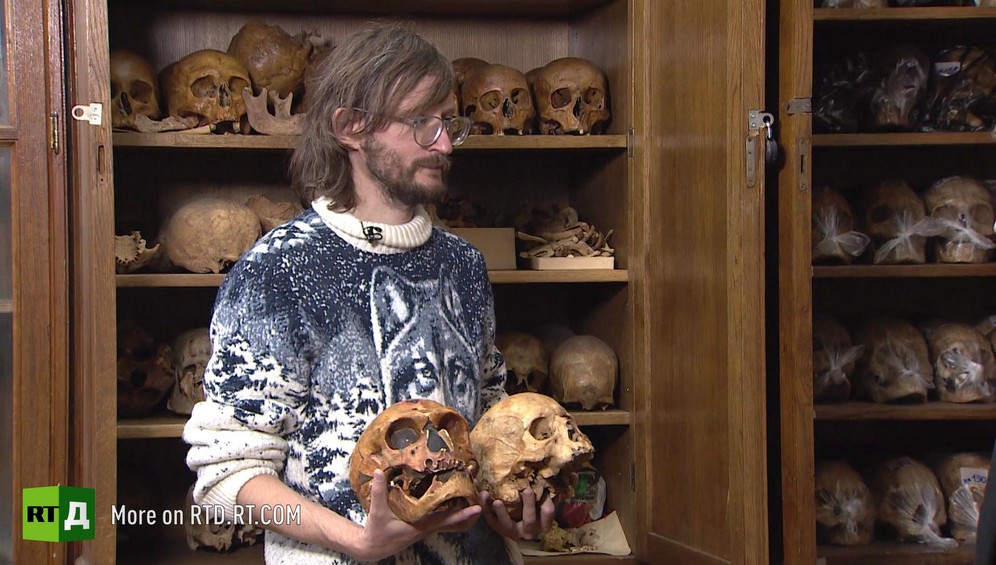
People who have vague ideas about science often say that evolution is just one of many theories. Is it really so? What can you say about it?
I would encourage these people to put forward their own theories. In fact, there have been some until recently, and they were even considered science-based, but sometime in the 60’s they all crumbled. The problem with people who utter such things is that most of the time they have a very vague understanding of what evolution is and don’t realize that the word “evolution” describes two separate notions. There’s the evolutionary process and there’s the theory of evolution that describes this process in simpler terms, the way we understand it. And these are two separate things. It’s like the force of gravity and the gravitational theory. Gravitational theory is described by a formula that we came up with, it could be faulty, it could contain wrong assumptions and so on. As for the force of gravity, it makes objects fall if they are thrown - no matter what. The same goes for the evolution. I mean, we witness evolution, we can even make use of it, as we do in medicine and agriculture, developing breeds and plant species.
On the other hand, there are concepts as to how the evolution works. And such concepts have been discussed numerous times. Yes, Darwin was the first one to come forward with this theory and, yes, he got it pretty much right. He kept improving his natural selection theory for 20 years and then threw in the concept of sexual selection into it, and the resulting theory was so perfect that we still don’t have much to add to it. All the examples he used are pretty much textbook perfect.
Back in the 19th century Darwin didn’t know anything about genes. There was no such word, genetics as a science didn’t exist, nobody knew about DNA or chromosomes. Yes, they could see something through their microscopes but couldn’t explain what it was. Huge advancement in genetics took place in 30’s, and at first geneticists were at odds with Darwin-theory proponents, thinking it was all wrong, because Darwin insisted that evolutionary changes were slow and gradual, while geneticists were able to witness mutations happen before their own eyes. Like, a grey drosophila turning yellow – here we go! They thought Darwinism had no place in it. Later, they realized those were all fragments of the same puzzle, because what they saw were macro-mutations, and micro-mutations simply weren’t that obvious. They did have a concept of gene, but what exactly it was, what the DNA molecule was, what the nucleotides were – they had no understanding of it yet.
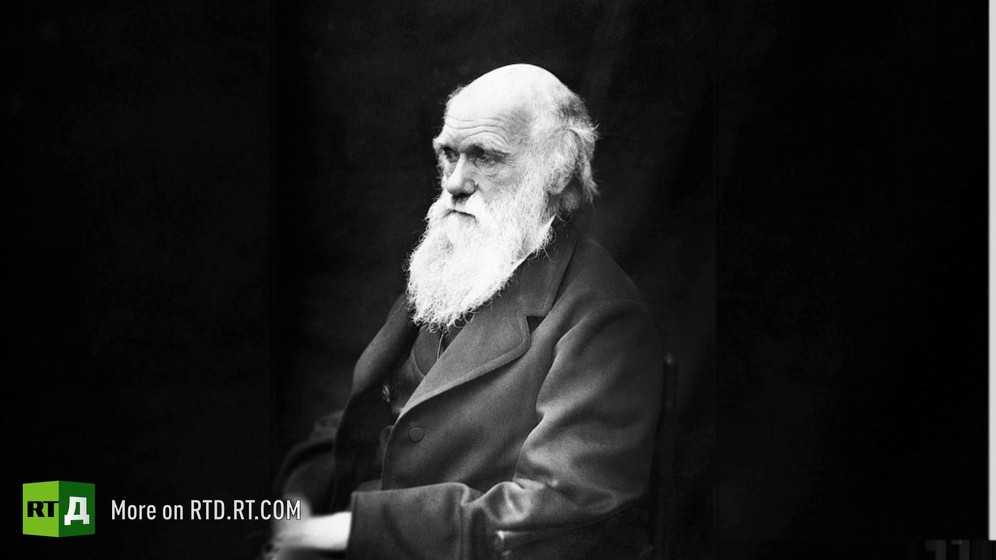
When someone says “the theory of evolution was conceived in the 19th century, and now we’re living in the 21st century”. Like, c'mon, Darwin died a long time ago. But even if Darwin had got some finer points wrong – although, surprisingly, he didn’t – it would mean nothing. Criticizing him would be like criticizing Newton who must have, likely, made some mistakes (while formulating his theory). It’s like saying that his theory is ancient and, therefore, there is no gravity these days. I suggest whoever thinks so should try and soar above this desk to prove Newton wrong.
What stage is the evolution of humans at right now? It couldn’t have possibly stopped, right? So what will happen to humans in the future? What will they evolve into?
We are changing very rapidly these days, first of all due to possessing a culture which gives us brand new opportunities in two respects. First of all, modern humans inhabit all the planet with all of its eco-systems: they live in the tropics, in the tundra, in the mountains, on the plains, in coastal areas, you name it. You are unlikely to find any other species on this planet as changeable as we are. We all belong to the same species and breed successfully between ourselves, and have fertile offspring, despite living in drastically different climates, or at different sea levels and so on. I mean, we’re extremely polymorphous and we have no boundaries. In similar situations animals tend to split into different species and as a result we have an ibex and an antelope etc., in the meantime humans remain one species.
On the other hand (natural) selection isn’t really strong these days, because of the culture we’ve got and of how comfortable our living conditions are these days. So we don’t have a rigid selection of the strongest, the fastest, the smartest and so on. But no one knows which particular characteristics among so many variables we’ll benefit from in the future. For example, when our ancestors’ teeth became smaller compared to those of Australopithecus at first it must have looked pathetic. Like, everybody’s got normal teeth and all of a sudden some individuals start sporting sorry-looking stumps instead of proper teeth. It must have looked awful. But now we’re proud of our small teeth and progressive ways, and of our miniature jaws. From the ancient point of view it must have been a drawback, but the selection rolled with it, which proves it was right. So if these days the selection seems to be choosing strange paths, there must be something to it.
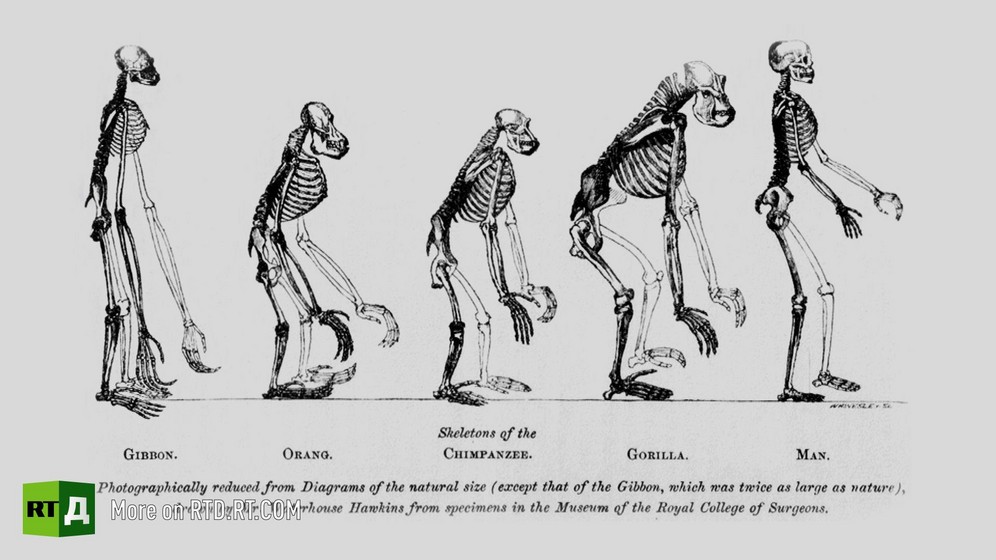
At the same time, there is no one direction these days, compared to the population of Australopithecus that changed quite uniformly 3 million years ago, with teeth getting smaller, people getting taller, their brains getting bigger. If, for example, we ever need to colonize Mars, we’ll have to learn how to use less oxygen. The gravity will be different, or we might face issues with calcium depositing in the bones that would lower our bone density, or we might have problems getting enough vitamins, since growing crops on Mars might be a bit difficult without any fertile soil available.
So we’ll have to solve a few issues and maybe fix some genes to ensure that our body synthesizes vitamin C. Our ancestors lost the ability to synthesize vitamin C some 40 million years ago, because they switched to fruit diets and started munching away at fresh ripe fruit. So, instead of synthesizing vitamin C, the body started getting it from food. At that point mutations that disrupted this synthesis popped up. There was no stabilizing selection (to prevent it from spreading), thus we can’t synthesize it any longer. So we know all too well that those who sailed around the world would often get scurvy, loose their teeth, swell up and die. That’s no good. And on Mars this issue could become very pressing once again. Of course, you could bring a bottle of vitamins, but sooner or later you’ll run out – and what’s next?
Is there any chance that once humans start colonizing other planets this process will start naturally?
It did start naturally once, but given that living conditions there will be dramatically different, people will most likely just die. It’s one thing when selection is happening on Earth, where our ancestors lived, and we are pretty much accustomed to these conditions even if they somewhat changed. We’ll just adapt. There however, living conditions will be completely different, plus don’t forget that natural selection is statistics, which works over large populations. This means that in order for natural selection to run its natural course, we need many thousands of people and many millions of years for us to become different from our ancestors. It took us some 300,000 years to become different from our ancestors. So the colony on Mars must continue for 300,000 years and count thousands of people, and during all of this time they must eat something and breathe something. There are no resources out there. As for us, we evolved while living in Africa. We just lived there and enjoyed life, which can’t be said about Mars. So, I guess, genetic engineering is the only way out.

Not so long time ago there was another scandal involving James Watson, the Nobel prize winner, who annoyed… He’s given some 10 interviews over the past 2 weeks. He was the one who actually identified the structure of DNA, and who was later stripped of all his titles over racist remarks. Since you are, among other things, a race anthropologist, what can you say about his comments? And what’s your take on the situation in general?
The old man put his foot in it. And those who have no idea about the subject made a big deal out of it. I mean, he said something stupid, but those he spoke to were absolutely clueless on the subject and it turned into a conversation between a blind man and a deaf one about something they don’t understand. Watson is a great man, he’s a fabulous biologist and a chemist, he’s an expert on DNA structure, for the record. But being an expert on DNA structure doesn’t make one an expert on races. Plus, in the West there is no such field of studies, it’s died out. At a certain point, some 40 years ago, they decided that denying races as such will rid us of racial problems. That this was we’ll get rid of racism. No races – no racism. And with that in mind racial studies were shut down. They were literally banned.
And it had the completely opposite effect. Racism didn’t go anywhere, yet the scientists who knew the score, who understood that all races were made equal and could explain why, were gone. Because the discipline was no longer taught in the West. Our country is practically the last one standing when it comes to racial studies. Well, I guess, not literally the last one, since there are good experts on racial studies in Japan, plus some in South America, in Argentina and a couple of people in Brazil. But these are the last experts in the field who know what they are talking about. As for Watson, he doesn’t know what he’s talking about. I mean, I can suspect where his claims are coming from when he says that one must judge a person not by the fact that they are Black or White, but rather by their actions. And he’s absolutely right about it. These days political correctness rules supreme in the West and results in reverse racism.
I mean, they have a problem with racism, they just call it by a different name. If a person is Black, he’s by definition right and no one can call him, say, a slacker if he’s Black. I guess Watson must have had an issue with some Black person trying to get a job at his lab and failing to get one, however, not because he was Black, but because he was a completely incompetent. It was not the matter of blackness, but the matter of incompetence. Watson, I guess, got really upset by the ordeal and overreacted. However, he was mandated to hire that person or else he’d be considered a racist. Because refusing to hire a Black person instantly makes one racist. What are you supposed to do, if you don’t want to hire a thicko? I don’t care what colour he is. I just want to make sure he can handle the test tubes.
As for his claim that Africa is in deep trouble because it’s Africa and there’s no hope for it… This is complete nonsense. I have a pretty good idea what research he referred to. It was some research measuring the IQ of black population from Bantustans in South Africa and comparing it to the IQ of South African college graduates. That’s not exactly a surprise. If you were born in a Bantustan, which is a slum, and received no education, you’re likely to show lower results.
There was similar research done in North America. The IQ scores of some random guys roughing it in the streets of, say, Harlem, were compared to those of Harvard graduates. I mean, who would have guessed? You could do a similar research in our country. Try and compare the IQ scores of some petty thugs from the suburbs and professors of Moscow State University. It’s going to look like we have a distinct race of professors. But it’s not about race. It’s about upbringing, about education, about medical care, adequate nutrition, infections, stress load and so on and so forth.
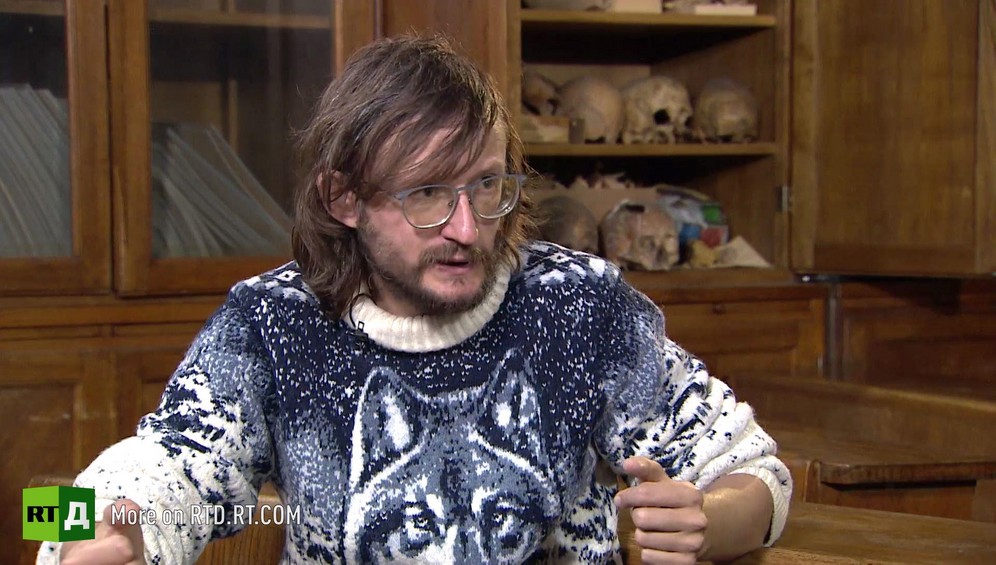
You’re doing quite a lot to popularize science. What does academia think about it? Aren’t you being criticized for simplifying scientific facts? What’s in it for you?
Of course I get criticized a lot. But I’m doing it because it needs to be done. Who else if not me? As I said, there aren’t many anthropologists and most of them aren’t keen to get involved with popular science. And no one can make them if they don’t want to. But if no one does it, freaks will take over. Some of them are just harmless ranters, but there are those who pursue their own agenda, like, for example, promoting racism. It all comes from the inability to understand the basic scientific concepts of anthropology. In the future it may result in serious social repercussions, we’ll end up having laws passed based on some pseudo-scientific concepts, and it will be a heavy blow to society. Both economically, medically and psychologically speaking.
Our life will take a turn for the worse. I don’t want my children to live worse. I want them to live better. I want our country to prosper – and the whole world. That’s why I’m into popularizing science, to make the world a better place for future generations. Science is the representation of reality. I want people to live by reality, not by myths. Not by where their wishful thinking takes them. Wishing for something is great as long as your wishes are rooted in reality. That’s why I’m doing it. And I’m doing it well. At least people seem to like it. For example, you decided to talk to me because you were interested. So, if people want to know the truth, why not share it with them?
As for academia… it is true that popularization means some sort of simplification, and I might get some certain nuances wrong, or I might misinterpret the facts or forget something. I might get a date or a name wrong. In any case, it creates a not-so-scientific interpretation. A scientific interpretation is something one gets along with a college degree having completed a five-year course of studies. And then, maybe, you could get a master’s degree and then a doctorate – which I don’t personally have. Well, popularizing science takes up lots of time. My department head Alexandra Buzhilova reprimands me from time to time and shakes her finger at me for doing too much for the popularization of science and being too absorbed in it. Well, as far as I see it, there are plenty of people who’ll contribute to science more than I ever can. There’s no shortage of smart people. And maybe those five articles that I fail to publish will be written by some other smart people. As for popularization, none of the anthropologists in our country are involved. So there’s no retreat for me.